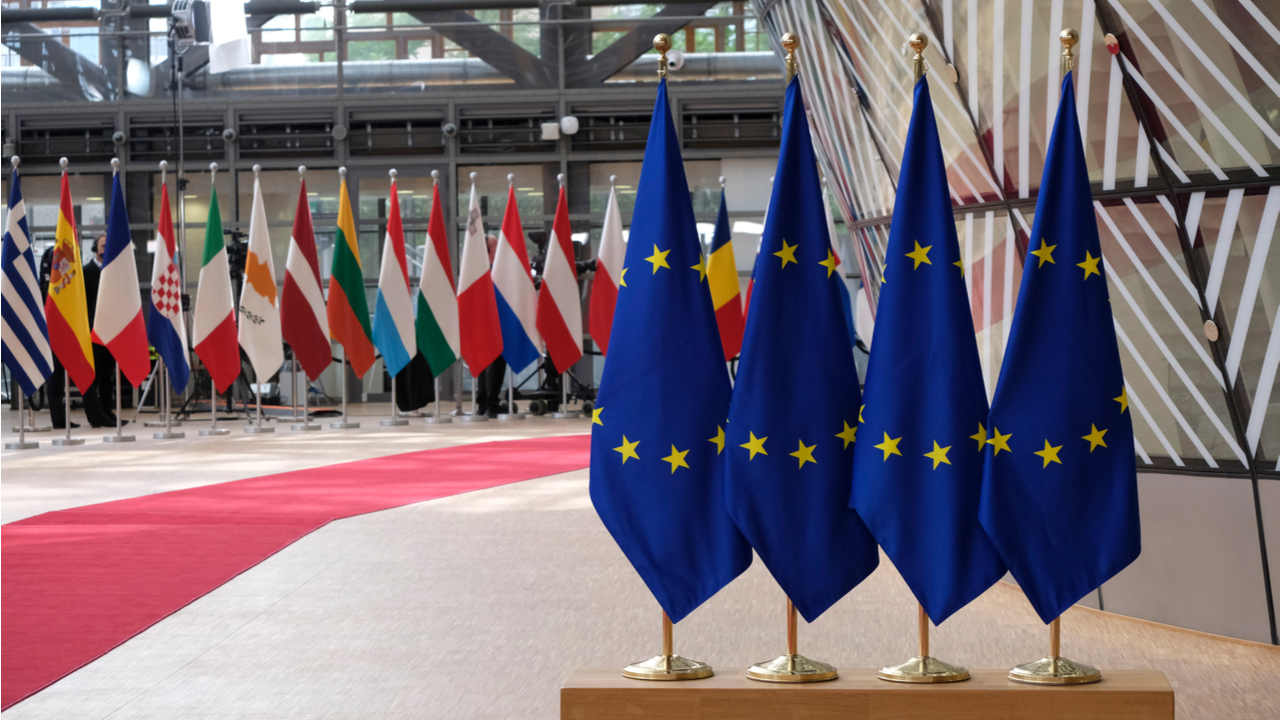[ad_1]
The last 13 years have found blockchain technologies evolve into a lot of use cases — finance, knowledge, logistics and safety, among the other individuals. Nonetheless, the concept of applying blockchain’s immutable abilities to ID people received new daily life when Changpeng “CZ” Zhao visited the island place of Palau to kick off its digital residency plan.
The blockchain identification administration industry is estimated to develop by $3.58 billion in the span of 5 yrs from 2021 to 2025. Critical elements contain the rising need for digitalization and privateness-respecting identity remedies. As a result, a myriad of remedies breached the current market serving this require in the sort of nonfungible tokens (NFT), distributed ledger technology (DLT) and barebone blockchain know-how.
Considering the plethora of use conditions that blockchain can provide on a working day-to-day foundation, many govt corporations commenced experimenting with the technological know-how — weighing closely on central lender digital currencies (CBDC) and verifiable and immutable person identity.
Issues with traditional IDs
The right way figuring out — or ID-ing — an individual has often been paramount to governments to be certain focused shipping of solutions and allowances, amid other requirements, which holds legitimate to this working day. Even so, ongoing progress in technological know-how empowered the common public with applications to create IDs visually similar to the primary. Offered blockchain’s ability to retail outlet immutable documents, authorities see the technology as a preventing prospect in opposition to fraud linked to ID theft and fakes.
With classic paper-based mostly IDs arrives the issue of confirming their legitimacy across different units. History has revealed how people effectively use pretend ID playing cards to claim unauthorized access to a myriad of added benefits. Nonetheless, technological breakthroughs these kinds of as blockchain have provided authorities with the option to difficulty verifiable certificates and IDs when making certain scalability, speed and safety of the identification management procedure.
Efforts on this front observed the increase of a new ecosystem comprising different blockchain-based electronic ID offerings. For instance, Shubham Gupta, an Indian Administrative Service (IAS) officer, lately spearheaded the launch of a Polygon-primarily based procedure for issuing verifiable caste certificates on behalf of the federal government of Maharashtra.
Talking to Cointelegraph, he stated, “if id administration programs have to be rated on a scale of to 1 based mostly on decentralization and specific handle, conventional centralized ID methods will be on the significantly remaining and totally self-hosted, community blockchain-centered IDs on the serious ideal.”
Kinds of blockchain-centered digital IDs
Whilst blockchain technological innovation can and has been utilised as-is for maintaining immutable data around the web, improvements spanning above the last decade resulted in the start of sub ecosystems around the use of blockchain engineering.
“The notion of blockchain-based mostly electronic IDs has been floating close to for rather a even though but arrived into the limelight with the modern NFT increase,” blockchain adviser and Bundlesbets.com CEO Brenda Gentry explained to Cointelegraph.

While NFTs were initially promoted as a resource to symbolize genuine-entire world objects such as mental and bodily property, the technology located itself very well-suited for a variety of apps. Just lately, authorities organizations have started testing NFTs for ID-ing citizens as means to minimize operational expenses.
“Wide-scale implementation of blockchain-centered digital IDs — like issuance of national id cards this kind of as passports and driving licenses — can take time but I strongly believe that that is the destination that the entire world should really transfer toward,” Gentry included. In addition to supporting authenticate individuals, blockchain technology discourages counterfeiting, tampering or identification theft attempts.
Citing the involvement of luxurious manufacturers and artists that promoted the use of NFTs to authenticate the legitimacy and possession of a product or art, Gentry opined that “luxury things can be checked for their authenticity on-chain which absolutely eradicates the chance of owning a counterfeit product or service.”
Modern: Uganda’s gold discovery: What it could imply for crypto
Neil Martis, the co-founder and project direct of LegitDoc, which is regarded in the room for offering several blockchain-based certificates and ID answers to the point out governments of India, envisions a greater adoption of public blockchain-based mostly ledgers over the future ten years. World-wide-web3-native decentralized IDs will enjoy an incremental position in pinpointing people and authenticating them to participate in various sorts of Web3 native transactions.
Gains of blockchain-centered electronic IDs
While blockchain’s elevator pitch is intensely inclined towards immutability, the engineering offers many rewards in excess of conventional software package and paper-centered methods. The views pertaining to the added benefits of blockchain boil down to the command above personal data.
Self-sovereignty stands as just one of the largest gains of blockchain-primarily based electronic IDs, according to Martis. This means that blockchain empowers end users to share partial or selective data with their provider companies alternatively of handing about their entire id.
With blockchain-dependent IDs eradicating the misuse of info, experts visualize the beginning of a certainly trustless process without having the involvement of 3rd get-togethers. Gentry, way too, reiterated verifiability, traceability and uniqueness as some of the important rewards brought about by blockchain, as she highlighted that blockchain IDs can’t be duplicated simply because it really is on the distributed ledger. “All the Electronic ID can be confirmed on the blockchain and can be traced again to the owners’ account which can also be made use of for Know Your Buyer,” she included.
Constraints of blockchain-dependent digital IDs
Mainstream acceptance of blockchain-based electronic IDs will in the long run have to necessarily mean overcoming the most pressing troubles that threaten to hinder its adoption. Some of the roadblocks that stand out in the present-day landscape incorporate a lack of instruction amid the masses and a supportive regulatory ecosystem.
On the training entrance, Gentry has discovered a rapid-altering situation introduced about by mainstream conversations and prevalent adoption of the engineering. Nevertheless, the creation of professional-crypto polices will need to have higher intervention from marketplace gamers to assist nations around the world and institutions get onboarded on to the blockchain community.
Martis concurred with Gentry’s thoughts on regulations as he highlighted that blockchain IDs, no issue how decentralized, will have to have attestation or recognition by the issuing authorities. He included: “if the issuing authorities never identify the validity of the blockchain IDs, then the exact same cannot be applied for availing a greater part of public products and services. This in my feeling is the greatest limitation.”
Blockchain of selection for ID-ing persons
Provided that a the vast majority of authentic-globe id programs are beneath the purview of governments and sovereigns, Martis envisions higher adoption of permissioned distributed ledger networks for issuing Identities that need governing administration companies.
Gentry mentioned that deciding on the great blockchain for IDing persons or goods will involve weighing the one of a kind rewards and limitations of the a variety of blockchain ecosystems. Although highlighting the present problems such as Ethereum’s fuel fees or Solana’s notorious outages, the blockchain advisor prompt that Binance’s BNB Chain is the great option of blockchain since of its large transactions for each second and very low latency and service fees.
Current: Bitcoin payments make a great deal of feeling for SMEs but the risks continue to keep on being
Speaking from particular working experience, Gupta shared that Indian point out governments have a tendency to pick a center floor whereby rather of a single authority fully in control of citizen identities, a team of impartial departments will share a widespread dispersed ledger that hosts citizen identities, anchored periodically on a general public blockchain.
The Maharashtra governing administration is at the moment performing to deploy a scalable blockchain-primarily based ID process for a tribal inhabitants of 1.2 million. Martis describes that the IDs designed will be used by various departments to accomplish analytics and identify the appropriate beneficiaries for various national schemes.
No matter of the challenges that gradual down blockchain adoption throughout small business verticals, the benefits of the technology make its dominance inevitable. Federal government organizations and personal entities have amped up attempts in uncovering futureproof fintech answers by way of blockchain innovations. Blockchain disruptions that are very well-positioned to go mainstream in addition to identification administration involve localized CBDCs, offer chain solutions and cross-border settlements.
Decentralized identities or DIDs (decentralized identifiers) have however to see wide-scale implementation. According to Martis, they really should be settled or issued by very decentralized community blockchains that are outdoors condition handle, adding that “Bitcoin and Ethereum stand out as the obvious alternatives in this regard.”



